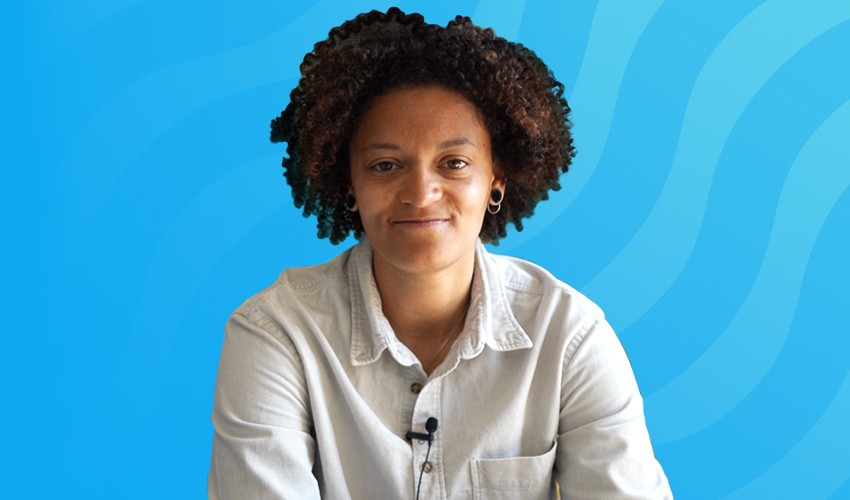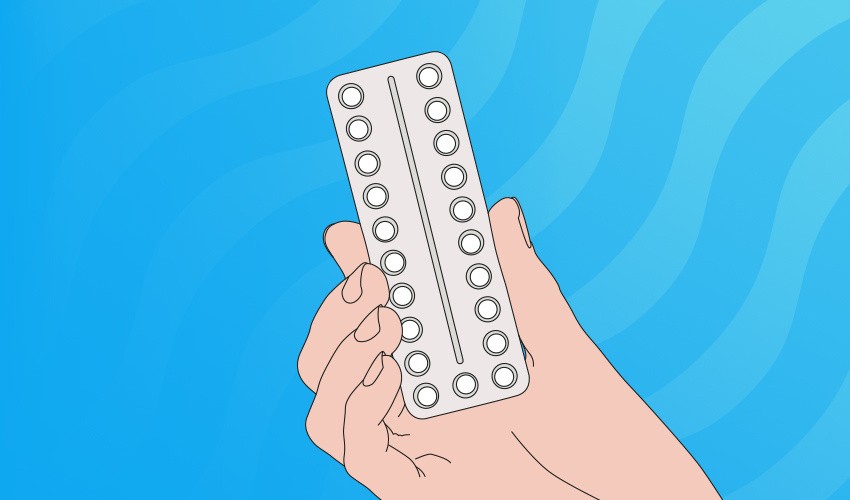You know the drill; you’re all out of the pill and you can’t get a GP appointment this month – let alone before your pill break is over. You could buy oral contraceptives online, but that’s just another cost you don’t need right now.
Almost half of women in the UK struggle to get contraception, limiting their freedom to enjoy sex without worrying about pregnancy. But times are changing! You can now get NHS contraception for free through Lovehoney Prescriptions, delivered to your door in a matter of days.
In this article, you’ll find out how safe and easy it is to get your oral contraception online. You’ll also hear from Dr. Naomi Gabriel, Digital Health Partnerships and Patient Impact Coordinator at Evaro, answering all your biggest questions about the pill.
How does ordering contraception online work?
No need to wait for a GP appointment or hang around your pharmacy while your prescription gets prepared – you can get the oral contraceptive pill for free online!
All you need to do is fill out a short questionnaire about your health and medical family history. It takes three minutes (!) and don’t worry – this information is reviewed only by registered healthcare professionals.
In certain circumstances, you might need to hop on a video call with a registered prescriber, but there's no need to go in-person for an appointment. Based on your individual health and family history, our e-pharmacy will help you choose a pill that’s best for you – if any.
Once your consultation is complete, your contraception will arrive within 48 hours – delivered to your door in discreet packaging. It’s fast, convenient, and totally free.
What’s the best pill for you?
There are two main kinds of oral contraceptive you can take: the combined oral contraceptive pill and the mini pill.
Here’s what you need to know about each one – according to Dr. Naomi Gabriel, who’s Patient Impact Co-Ordinator at Evaro, the e-pharmacy behind Lovehoney Prescriptions.
Combined pill aka “the pill”
The combined pill might be a good choice for you if:
- You want more predictable bleeding patterns
- You’d like help with acne or PMS symptoms
- You’re under 35, a non-smoker, and don’t have risk factors like migraines with aura, high blood pressure or clotting disorders
The combined pill usually contains synthetic versions of two hormones that are naturally present in women’s bodies: oestrogen and progesterone. It works by thickening your cervical mucus and thinning the lining of the uterus. This makes it harder for an egg to become fertilised and implanted in the uterus.
The pill also prevents ovulation, which is when a mature egg is released, ready for fertilisation, as part of your natural menstrual cycle. “Without an egg to fertilise, pregnancy cannot occur,” says Naomi.
Progestogen-only pill aka “the mini pill”
The progestogen-only pill might be better if:
- You’re over 35 and smoke
- You’re breastfeeding
- You have a history of migraines with aura
- You’ve been advised not to take oestrogen due to medical conditions like hypertension, obesity, or family history of clots
The progestogen-only pill only contains one hormone, which means ovulation isn’t always avoided. The thickening of cervical mucus and thinning of the lining do happen, which makes it more difficult for the sperm to reach the egg (and for the fertilised egg to be implanted).
“For this to be effective, the pill must be taken consistently each day, and usually around the same time each day,” says Naomi. Depending on the type of pill, you might have a 3- or 12-hour window when it must be taken each day.
Myths about the pill – here’s what you need to know
If you take the pill, chances are you already know how game-changing it is to your health and sexual freedom.
“The most obvious benefit is not having to worry about unwanted pregnancy,” says Naomi. “But other benefits are having lighter, less painful, or more regular periods – as well as potentially reducing symptoms of endometriosis, PCOS, or acne.”
Oral contraceptives have a lot of benefits, but it’s understandable that there are still some fears around how they impact our health. Here are some common questions, answered.
Does the pill cause weight gain?
This is a common fear, but there’s no need to worry. “There isn’t a strong scientific link between weight gain and oral contraceptives,” Naomi explains.
She continues: “Oestrogen and progestogen, the two hormones present in the pill, do have different impacts on our metabolism. For example, oestrogen may lower the body’s ability to break down fats. On the whole, however, the science doesn’t currently support the view that most hormonal contraceptives cause significant weight gain.”
Will the pill make you infertile?
No, contraception doesn’t make you infertile – and some people get pregnant soon after stopping the pill. This varies from person to person, which may be why there’s a misconception about it.
“Some women may experience a delay in the return of their regular menstrual cycles after stopping the pill, which can temporarily delay conception,” says Naomi. “This is usually due to the body readjusting its natural hormonal balance.”
If you’re worried about your fertility after stopping contraception, it’s always best to speak to a healthcare professional to get personalised advice.
Can you still get pregnant on the pill?
Yes! “No method is 100% effective,” advises Naomi. “Human error, such as missing pills, incorrect condom use, or miscalculation of fertile days, can reduce the effectiveness of even the most reliable methods.”
When you speak to a healthcare professional about your pill, make sure you know how to take it effectively – and what to do if you miss a day.
Does the pill increase your risk of cancer?
Yes and no. The short answer is that there’s a slightly elevated risk of breast cancer when taking the pill, while the risk is actually reduced for other cancers.
Naomi explains: “Of all breast cancer cases, about 1 in every 100 is linked to the pill. But the medical field agrees that the benefits of the pill often outweigh the risks if you’ve been screened properly for risk factors. It’s also good to note that the risks reduce after stopping the pill.”
“For other cancers, like bowel, ovarian, and endometrial cancer, we actually see a reduction in the risk in women who take the pill,” Naomi continues. “In some cases, that’s a 20-50% reduction in risk.”
When you get the pill via Lovehoney Prescriptions, a UK-registered prescriber will assess your risk factors and make a recommendation based on your individual health and medical family history. If you’re still worried about taking the pill, there are other options available through your GP.
Where can you get the pill?
There are a few ways to get the pill, including:
Through your GP: If you’re organised, you can get an appointment with your GP to receive the pill for free via the NHS. You’ll have to wait for an appointment, so the GP can do a consultation in person, and make time to get to the pharmacy to collect your contraception.
At your local pharmacy: Your local NHS pharmacist can issue the pill, and you might find it easier to get an appointment there than at your GP. You’ll still need to go in person for your consultation and wait for your pill to be prepared.
Paid, via an online retailer: Some health and beauty retailers allow you to order the pill online – at a price. It’s convenient but not cheap. Paying for the pill can be frustrating, since it’s possible to get it for free via the NHS.
For free, via Lovehoney Prescriptions: Thanks to our e-pharmacy partner, Evaro, you can now get NHS contraception delivered straight to your door.
Once your prescription is ready, your pill will be delivered within 48 hours. It’s fast and convenient, plus you still get a consultation with a UK-registered pharmacist, so it’s safe too.

